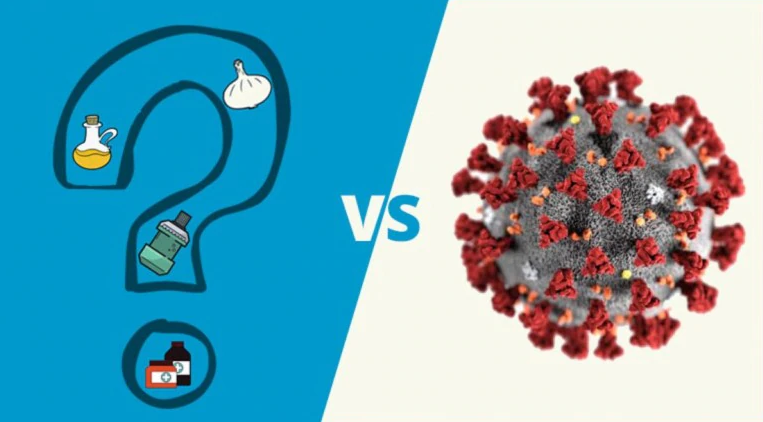
9 Myths about the Coronavirus that you should not believe
The World Health Organization (WHO) rejects false ‘advice’ that has circulated as alleged ways to prevent the spread of the disease
Myths debunked by the WHO:
1) Can washing my nose regularly with saline can help prevent new coronavirus infections?
There is no evidence that regular washing of the nose with saline has protected people from infection with the new coronavirus.
2) Can eating garlic help prevent coronavirus infections?
Garlic is a healthy food that may have some macrobiotic properties, but there is no evidence that eating it has protected people from the new coronavirus.
3) Do pneumonia vaccines protect against coronavirus?
No. Pneumonia vaccines do not provide protection against the coronavirus. The virus is new and different. You need your own vaccine.
4) Is it safe to receive a letter or package from China?
Yes, it is safe. People receiving packages from China are at no risk of contracting the virus. Based on previous analyzes, we know that the coronavirus does not survive long on objects such as letters or packages.
5) Does putting or eating sesame oil block the entry of coronavirus into the body?
No. Sesame oil is delicious, but it doesn’t kill the virus.
6) Can domestic pets spread the new coronavirus?
So far there is no evidence that companion animals/pets such as cats or dogs can become infected with the virus. However, it is a good idea to wash your hands with soap and water after having contact with pets.
7) Does the new coronavirus affect older people, or are young people also susceptible?
People of all ages can be infected by the virus.
Seniors and those with pre-existing medical conditions appear to be more vulnerable to becoming seriously ill from the virus.
8) Are antibiotics effective in preventing and treating the new coronavirus?
No, antibiotics don’t work against viruses, only against bacteria. Antibiotics should not be used as a form of prevention or treatment of the coronavirus.
9. Is there a specific medicine to prevent or treat the new coronavirus?
To date, there is no recommended medicine to prevent or treat the virus. WHO is helping to accelerate research and development efforts with a number of colleagues.





